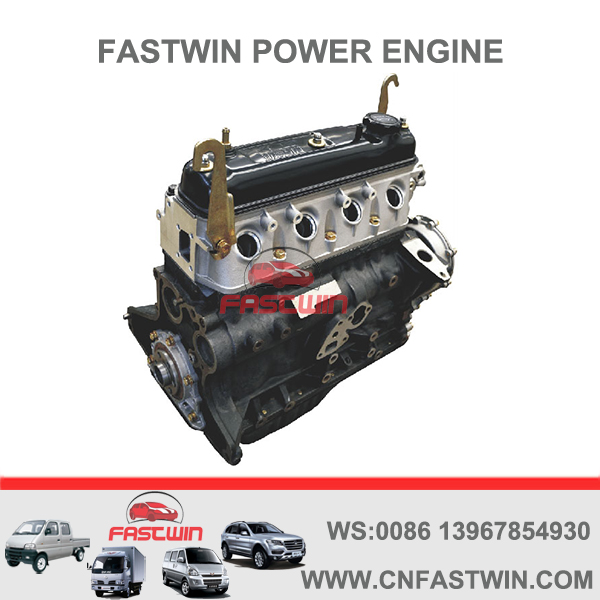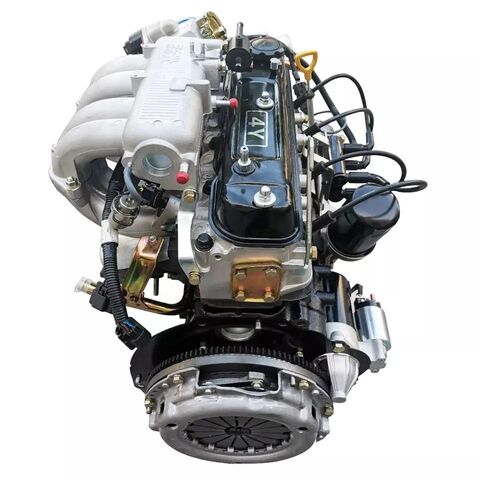What Makes the 4Y Engine Stand Out Among Other Automotive Engines
What Makes the 4Y Engine Stand Out Among Other Automotive Engines
Blog Article
Exploring the Various Kinds Of Engine: Which One Fits Your Needs?
In the pursuit to identify one of the most appropriate engine kind for your details requirements, it is essential to evaluate the distinctive attributes and advantages of each choice offered. Inner combustion engines continue to control because of their dependability, while electrical engines are obtaining grip for their sustainability. Hybrid engines supply a flexible compromise, and diesel motor stick out for their power sought after applications. Furthermore, different gas engines existing cutting-edge options, albeit with specific constraints. Recognizing your priorities will certainly be instrumental in this decision-making process, bring about an expedition of variables that might influence your choice.

Inner Burning Engines
Internal combustion engines (ICEs) are the foundation of modern-day transport, powering a substantial array of lorries from autos to aircrafts. These engines run on the principle of transforming fuel right into power via a series of controlled explosions within a combustion chamber. The most usual kinds of ICEs consist of gas engines, diesel engines, and rotating engines, each designed to satisfy specific efficiency and performance requirements.
Gasoline engines typically make use of spark ignition, while diesel motor rely upon compression ignition, leading to distinctive differences in gas efficiency and power outcome (4y engine). Rotating engines, or Wankel engines, provide a portable design and smooth procedure, yet are less generally used in mainstream applications
ICEs have actually undergone considerable advancements in innovation, consisting of the introduction of turbocharging and gas shot systems, which boost general effectiveness and efficiency. Despite their effectiveness renovations, ICEs face boosting analysis due to their ecological effect, especially regarding greenhouse gas exhausts. As the automotive sector progresses, the future of ICEs continues to be a topic of dispute, stabilizing efficiency, performance, and environmental considerations. Nonetheless, they continue to play a crucial role in worldwide transportation facilities.
Electric Engines
As problems regarding ecological sustainability and nonrenewable fuel source reliance expand, electric engines have actually become an engaging option to internal burning engines. These engines make use of electric motors powered by batteries or fuel cells, providing a cleaner and extra reliable motive powers.
One of the primary benefits of electric engines is their reduced exhausts. Unlike standard engines that shed fossil fuels, electrical engines create zero tailpipe emissions, significantly lowering air contamination and contributing to boosted public wellness. Furthermore, the efficiency of electrical motors usually goes beyond that of interior burning engines, transforming a greater percentage of energy from the source of power into useful energy for activity.
Electric engines are likewise notable for their silent operation, making them excellent for metropolitan environments. 4y engine. The simplicity of their layout leads to less moving components, which can lead to minimized maintenance prices and enhanced integrity in time
However, difficulties remain, consisting of battery production influences, billing infrastructure, and array restrictions. Despite these difficulties, the expanding investment in electrical lorry modern technology and sustainable energy sources factors toward an appealing future for electrical engines, positioned to play an essential function in the shift toward lasting transport.
Hybrid Engines
Mixing the advantages of both typical and electrical inner burning engines, hybrid engines represent a functional service in the mission for reliable and lasting transportation. These engines combine a gas or diesel engine with an electrical motor, permitting for boosted gas efficiency and decreased discharges compared to standard lorries.
Hybrid engines operate in several settings, using the electric motor for low-speed driving and the interior combustion engine for higher speeds or when more power is needed. This dynamic operation not only enhances fuel economic climate however likewise adds to a smoother driving experience. Regenerative stopping is an additional critical feature, catching energy commonly shed throughout stopping and redirecting it to charge the battery.

As customers significantly focus on eco-friendliness, hybrid engines stand out as a practical selection, using an effective equilibrium of efficiency, efficiency, and environmental responsibility. This flexibility makes them appropriate for metropolitan commuting and long-distance traveling alike.
Diesel Motor
Performance and power are hallmarks of diesel engines, which have actually long been preferred for their robustness and fuel economic situation. These engines run on the concept of compression ignition, where air is pressed to a high temperature before fuel is infused, igniting it without the need for trigger plugs. This process makes it possible for diesel motor to achieve higher thermal performance compared to fuel engines, equating right into better fuel gas mileage and lower carbon dioxide exhausts.
Diesel engines are specifically well-suited for durable applications such as vehicles, buses, and commercial equipment, where torque and go sturdiness are extremely important. Their design usually consists of more powerful parts to withstand the higher pressures produced during operation, leading to longer life span and lowered upkeep costs.

Alternative Gas Engines
While diesel engines have long dominated the landscape of sturdy power resources, alternate fuel engines are acquiring traction as practical options for a more sustainable future. These engines utilize a selection of fuels, such as compressed gas (CNG), lp, ethanol, and hydrogen, aiming to decrease greenhouse gas exhausts and dependence on nonrenewable fuel sources.
One substantial benefit of alternate fuel engines is their possible to lower carbon footprints. CNG engines release fewer contaminants compared to traditional diesel engines, making them suitable for urban transit systems and fleets seeking to boost air quality. Ethanol, stemmed from biomass, not just decreases exhausts yet additionally sustains agricultural economic situations.
Hydrogen click here for info fuel cells represent a sophisticated advancement in this world, providing zero-emission power via a chain reaction between hydrogen and oxygen. Difficulties such as framework development and production expenses continue to be barriers to widespread adoption.
Final Thought
In verdict, selecting the appropriate engine type requires mindful factor to consider of specific requirements and choices. Internal combustion engines use reliability, while electric engines focus on sustainability and reduced maintenance. Crossbreed engines combine the advantages of both, improving performance, whereas diesel engines supply exceptional power and torque for durable applications. Alternative fuel engines existing green alternatives, albeit with possible infrastructure difficulties. Eventually, a thorough assessment of driving practices and ecological worths will certainly facilitate an informed decision regarding engine selection.
Hybrid engines use a flexible compromise, and diesel engines stand out for their power in demanding applications. The most usual kinds of ICEs include gasoline engines, diesel engines, and rotary engines, each developed to satisfy details performance and efficiency requirements.
Unlike conventional engines that shed fossil fuels, electric engines generate no tailpipe exhausts, considerably decreasing air pollution and contributing to enhanced public wellness.Hybrid engines run in several settings, utilizing the electrical motor for low-speed driving and the internal burning engine for higher rates or when more power is needed. Crossbreed engines incorporate the benefits of both, boosting performance, whereas diesel engines supply premium power and torque for sturdy applications.
Report this page